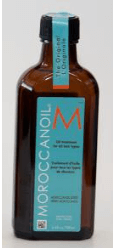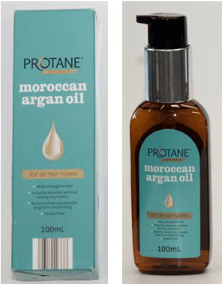
Reasonable minds can differ: Has the Federal Court of Australia lowered the test for overturning judgments?
The slogan “like brands, only cheaper” is central to German supermarket giant Aldi’s business model. Aldi’s house brands are developed on the back of successful “original” products but are provided at a lower price point to consumers. In doing so, Aldi (and other businesses with a similar business models) tread a very fine line.
On 22 June 2018, the Full Federal Court of Australia handed down its decision in Aldi Foods Pty Ltd v Moroccanoil Israel Ltd [2018] FCAFC 93. The decision is important as the Full Court (including the Chief Justice) addressed the vexed question of the role of an appeal court in reviewing decisions on matters of impression: the cornerstone of cases involving trade mark infringement, misleading and deceptive conduct and passing off.
Background
Since September 2009, Moroccanoil Israel Ltd (MIL) has sold hair care products in Australia in turquoise packaging featuring the trade mark MOROCCANOIL in the following formats:


MIL’s products were very successful and became “on-trend” hair products in high demand.
In 2012 Aldi commenced selling hair care products under its house brand “PROTANE”, the sub-brand “NATURALS” and the sign “moroccan argan oil”. An example of the packaging used by Aldi is shown below:

This case involved issues of alleged trade mark infringement, passing off, misleading and deceptive advertising claims and the question of whether the trade mark MOROCCANOIL should be afforded trade mark protection.
What is the role of an appeal court in matters of impression?
Invariably, trade mark, passing off and misleading and deceptive conduct cases turn on matters of impression. In Australia the catch-cry of lawyers and judges alike is that “on matters of impression, reasonable minds can differ.” In that context, the Full Court addressed the role of an appeal court in reviewing and potentially over-turning a trial judgment that turns on a matter of impression, an evaluative decision.
In recent years a line of Australian cases suggested that an evaluative decision made by a trial judge could only be overturned by the appeal court if the trial judge’s decision was “plainly and obviously” wrong. In Moroccanoil, the Full Court held that this approach is incorrect. The Chief Justice held that such an approach sets the “standard of appellate review higher than it should be, by its formulaic false simplicity and false clarity“[1].
The test adopted by the Full Court is that if there is a sufficiently clear difference of opinion between the appeal court and the trial judge, the trial judgment should be overturned. Arguably, this lowers the threshold and returns to the test previously adopted in Branir Pty Ltd v Owston Nominees Pty Ltd (No 2). How this test will be applied in practice is yet to be seen. Adopting the words of United States Supreme Court Justice Potter Stewart in Jacobellis v. Ohio, a colloquial interpretation of the test may be that an appellate court will know error when it sees it. On its face it appears to be a more subjective test for an appeal court and it may well lead to more frequent appeals of decisions on matters of impression as unsuccessful litigants seek to have a second bite of the cherry on appeal.
Other findings – “naturals” claims and whether a plain English word is capable of distinguishing
The Full Court also reversed the trial judge’s findings that:
• MIL should be entitled to register the word trade mark MOROCCANOIL on the basis that through extensive use it became capable of distinguishing MIL’s goods; and
• Aldi’s “naturals claims” were misleading or deceptive.
While the Full Court accepted that MIL adduced substantial evidence of use of the stylised forms of the trade mark MOROCCANOIL, it held that this was not use of the plain word mark such that the plain word mark had become inherently adapted to distinguish MIL’s products from those of other traders. The Full Court held that the paramount consideration is “whether, in the form the mark was actually used, the impression on the public mind would be of the stylised branding of [the word] or purely of the word itself“[2]. Importantly in this case, the degree of stylisation was relatively minimal. This highlights for brand owners the importance of using plain word versions of their mark in addition to using stylised logos.
On the issue of “natural” claims, the Full Court held that the trial judge had approached the question “armed with the dictionary definition” of the word “naturals” which led her Honour to consider whether the ingredients in the products could be described as “natural”. However, the Full Court held that the correct question was what the ordinary reasonable consumer, in the context of the shopping experience, would perceive the word “naturals” to mean. Having regard to the purchasing context (the Aldi products were sold in the “cheapest part of one of the cheapest stores” at low prices) the Full Court held that an ordinary reasonable consumer would understand that the products did not contain substantially natural products. Therefore the claim was not misleading or deceptive.
Practical implications
• It may now be easier for unsuccessful litigants to have matters of impression re-determined on appeal.
• If registration of a plain English word trade mark is sought, brand owners should ensure they can demonstrate substantial evidence of use of the non-stylised, plain text version of the mark.
• The decision paves the way in Australia for products to be marketed as “natural” despite the fact that they may not be wholly or substantially made from natural ingredients.
[1] Aldi Foods Pty Ltd v Moroccanoil Israel Ltd [2018] FCAFC 93at [9] per Allsop CJ.
[2] Moroccanoil at [161] per Perram J.








